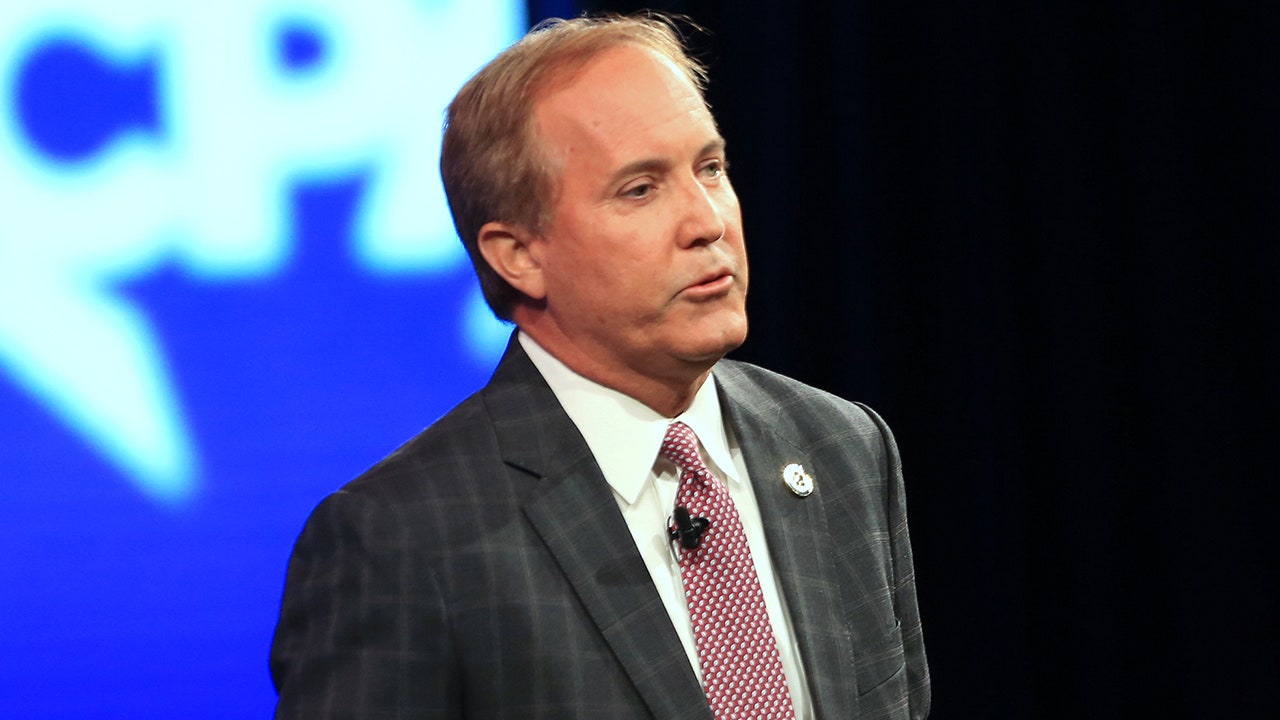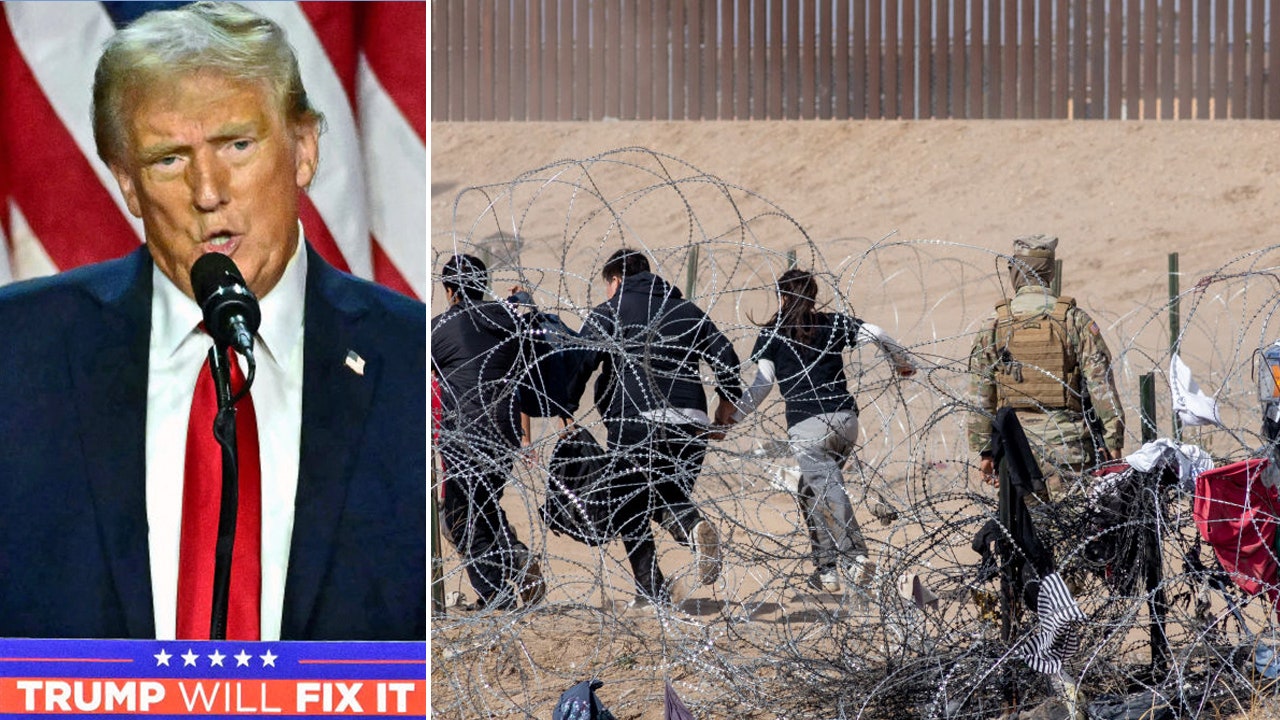World
Stanford president resigns following research ethics probe

The president of Stanford University has stepped down in the wake of an independent investigation that found “substandard practices” in research papers he was involved in.
Marc Tessier-Lavigne, the leader of the prestigious California university, issued a statement on Wednesday saying he would leave his post, effective August 31.
Media reports in the United States had raised questions about “falsified data” in research linked to Tessier-Lavigne, a prominent neuroscientist from Ontario, Canada.
But on Monday, a scientific panel commissioned by Stanford’s Board of Trustees cleared Tessier-Lavigne of participating in any misconduct, though it did find “serious flaws” in the research papers reviewed.
“The Panel has identified evidence of manipulation of research data in at least four of the five primary papers at issue,” it wrote in a report.
“But the Panel did not find evidence to conclude that Dr Tessier-Lavigne engaged in, directed or knew of the misconduct when it occurred.”
The group also found that “a scientist exercising reasonable care could not have been expected” to detect the research flaws at the time, though it did fault Tessier-Lavigne for failing to “decisively and forthrightly correct mistakes in the scientific record”.
The panel — comprised of neuroscientists, biologists and one Nobel laureate — examined 12 research papers Tessier-Lavigne participated in, seven in which he was a “non-principal author” and five where he was listed among the leads.
The review, it said, involved filtering through 50,000 documents and holding more than 50 meetings with witnesses and individuals involved in the scandal.
Questions about Tessier-Lavigne’s scientific work started to emerge on the platform PubPeer, where scientists can discuss and evaluate research online.
There, commenters like scientist Elisabeth Bik raised concerns as far back as 2015 about images in Tessier-Lavigne’s research that appeared to be digitally altered.
One research paper in particular, published in the journal Nature in 2009, sought to identify causes for brain degeneration in Alzheimer’s patients.
Tessier-Lavigne’s employer at the time, the biotech company Genentech, hailed the paper as “groundbreaking research” that offered “an entirely new way of looking at the cause of Alzheimer’s disease, the sixth leading cause of death in the United States”.
“Because of this research, we are working to develop both antibodies and small molecules that may attack Alzheimer’s from a novel entry point and help the millions of people who currently suffer from this devastating disease,” the company wrote in its annual report.
But scientists struggled to reproduce the results documented in the 2009 paper, leading to questions about the accuracy of its data — or whether it had been falsified altogether.
The Stanford Daily, a student-run campus newspaper, helped bring these concerns to light with a series of articles over the last year, quoting Bik and other scientists, some of whom chose to remain anonymous.
While Monday’s independent review ultimately found Tessier-Lavigne was “not reckless” in his scientific practice, it did affirm that “there was apparent manipulation of research data by others”.
Timely corrections, retractions and “forthright and transparent actions” would have “better served science and all concerned”, the panel said.
It called for “significant action” to “correct the scientific record”. It also noted that Tessier-Lavigne now plans to retract several of the publications.
For his part, Tessier-Lavigne has continued to deny allegations of unethical behaviour, noting that his career spans three decades and hundreds of research papers.
“I am gratified that the Panel concluded I did not engage in any fraud or falsification of scientific data,” he said in his resignation statement on Wednesday.
“As I have emphatically stated, I have never submitted a scientific paper without firmly believing that the data were correct and accurately presented. Today’s report supports that statement.”
One of the most selective private research universities in the US, located in the heart of Silicon Valley, Stanford has a history of pumping out notable alumni, from world leaders like the United Kingdom’s Prime Minister Rishi Sunak to tech entrepreneurs like Elon Musk, who reportedly dropped out after two days.
Tessier-Lavigne has served in his role as president for nearly seven years. He will be replaced by interim president Richard Saller, starting in September.

World
US envoy Witkoff meets Putin in Russia over Ukraine war

The Kremlin says Witkoff ‘will bring something from his president to Putin’ in push for a Ukraine peace settlement.
United States President Donald Trump’s special envoy, Steve Witkoff, is holding talks with Russian President Vladimir Putin in Saint Petersburg to discuss the war in Ukraine, according to the Kremlin.
Kremlin spokesperson Dmitry Peskov confirmed on Friday that Witkoff and Putin were in the Russian city.
“The painstaking work continues. Naturally, Witkoff, as a special representative of President Trump, will bring something from his president to Putin,” Peskov was quoted as saying by Russia’s TASS news agency.
“Putin will listen to it. The conversation on various aspects of the Ukrainian settlement will continue.”
Earlier on Friday, Russian state media published footage of Witkoff and Russia’s economic negotiator, Kirill Dmitriev, leaving a hotel in Saint Petersburg.
Talks to secure a ceasefire deal to end the Ukraine war have stalled amid negotiations on the conditions to end the conflict.
At the end of March, Trump said he was “very angry” and “p****d off” after Putin criticised the credibility of Ukrainian President Volodymyr Zelenskyy’s leadership.
Trump told NBC News: “If Russia and I are unable to make a deal on stopping the bloodshed in Ukraine, and if I think it was Russia’s fault – which it might not be – but if I think it was Russia’s fault, I am going to put secondary tariffs on oil, on all oil coming out of Russia.”
Last month, Putin rejected a joint US-Ukrainian proposal for a complete and unconditional ceasefire.
While Russia and Ukraine agreed to halt attacks on energy infrastructure in March, both sides have accused each other of continuing attacks.
Mending ties
Witkoff has quickly become a key figure in discussions between Washington and Moscow as frosty tensions during former President Joe Biden’s administration have eased.
After his last meeting with Putin, Witkoff said the Russian president was a “great leader” and “not a bad guy”.
More recently, US and Russian officials held talks on Thursday in Turkiye.
Both sides said they had made progress towards normalising the work of their diplomatic missions.
That same day, Russia freed Russian American Ksenia Karelina from prison in exchange for the suspected tech smuggler Arthur Petrov.
Russian Foreign Minister Sergey Lavrov said that prisoner exchanges helped build “trust, which is much needed” between the two sides after ties deteriorated under Biden.
World
Social Security lists thousands of living immigrants as dead to prompt them to leave, AP sources say
WASHINGTON (AP) — The Trump administration has moved to classify more than 6,000 living immigrants as dead, canceling their Social Security numbers and effectively wiping out their ability to work or receive benefits in an effort to get them to leave the country, according to two people familiar with the situation.
The move will make it much harder for those affected to use banks or other basic services where Social Security numbers are required. It’s part of a broader effort by President Donald Trump to crack down on immigrants who were allowed to enter and remain temporarily in the United States under programs instituted by his predecessor, Joe Biden.
The Trump administration is moving the immigrants’ names and legally obtained Social Security numbers to a database that federal officials normally use to track the deceased, according to the two people familiar with the moves and their ramifications. They spoke on condition of anonymity Thursday night because the plans had not yet been publicly detailed.
The officials said stripping the immigrants of their Social Security numbers will cut them off from many financial services and encourage them to “self-deport” and abandon the U.S. for their birth countries.
It wasn’t immediately clear how the 6,000-plus immigrants were chosen. But the Trump White House has targeted people in the country temporarily under Biden-era programs, including more than 900,000 immigrants who entered the U.S. using that administration’s CBP One app.
On Monday, the Department of Homeland Security revoked the legal status of the immigrants who used that app. They had generally been allowed to remain in the U.S. for two years with work authorization under presidential parole authority during the Biden era, but are now expected to self-deport.
Meanwhile, a federal judge said Thursday that she was stopping the Trump administration from ordering hundreds of thousands of Cubans, Haitians, Nicaraguans and Venezuelans with temporary legal status to leave the country later this month.
A representative from the Social Security Administration did not respond to a request for comment on the news that living immigrants were being classified as dead. The agency maintains the most complete federal database of individuals who have died, and the file contains more than 142 million records, which go back to 1899.
The Privacy Act allows the Social Security Administration to disclose information to law enforcement in limited circumstances, which includes when a violent crime has been committed or other criminal activity.
DHS and the Treasury Deprartment signed a deal this week that would allow the IRS to share immigrants’ tax data with Immigration and Customs Enforcement for the purpose of identifying and deporting people illegally in the U.S. The agreement will allow ICE to submit names and addresses of immigrants inside the U.S. illegally to the IRS for cross-verification against tax records.
The acting IRS commissioner, Melanie Krause, who had served in that capacity since February, stepped down over that deal.
In March, meanwhile, a federal judge temporarily blocked a team charged with cutting federal jobs and shrinking the government led by billionaire Elon Musk from Social Security systems that hold personal data on millions of Americans, calling their work there a “fishing expedition.”
Skye Perryman, president and CEO of Democracy Forward, an advocacy group that has challenged various Trump administration efforts in court, said her organization would likely sue over the Social Security numbers as well, once more details become available.
“This President continues to engage in lawless behavior, violating the law and abusing our systems of checks and balances,” Perryman said.
World
China ramps up military ‘rehearsals’ around Taiwan, outstrips US in air, maritime, space
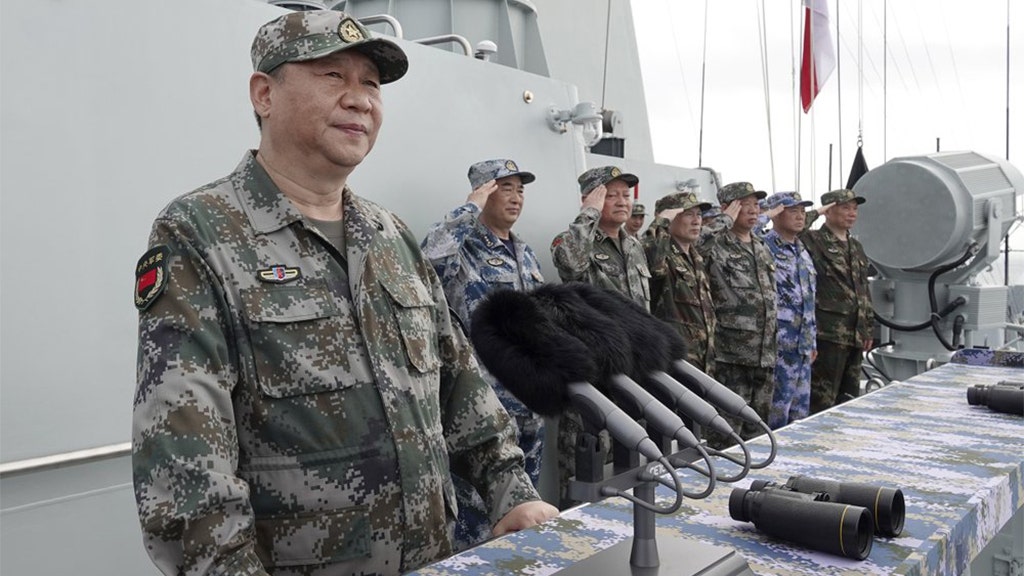
China has been ramping up its military actions around Taiwan in what one top commander warned on Thursday are not just drills, but “rehearsals.”
“China’s unprecedented aggression and military modernization poses a serious threat to the homeland, our allies and our partners,” Adm. Samuel Paparo, commander of the U.S. Indo-Pacific Command, said during a hearing with the Senate Armed Services Committee on Thursday. “With military pressure against Taiwan increasing by 300%, China’s increasingly aggressive actions near Taiwan are not just exercises, they are rehearsals.”
Soldiers take up positions during military drills in Jiangxi, China, on Jan. 29, 2023. (CFOTO/Future Publishing via Getty Images)
CHINA LAUNCHES LARGE MILITARY DRILLS AROUND TAIWAN TO ISSUE ‘SEVERE WARNING’
Beijing has long looked to assert its dominance over Taiwan as it aims to “reunify” the island with mainland China in a move the West and Taipei have warned is against Taiwan’s wishes and would disturb the region’s status quo.
Taiwan identifies as a sovereign nation. However, it is officially recognized by China, the United Nations and the U.S. as part of the “One China” policy – though the U.S. has increasingly warned Beijing against disrupting regional stability by forcibly “reunifying” the island with the mainland.
“While the [People’s Liberation Army] PLA attempts to intimidate the people of Taiwan and demonstrate coercive capabilities, these actions are backfiring, drawing increased global attention and accelerating Taiwan’s own defense preparations,” Paparo said.

People’s Liberation Army launches joint military operations around Taiwan island. (People’s Liberation Army, China)
TAIWAN’S PRESIDENT TARGETS CHINA INFLUENCE, KICKS OUT PRO-BEIJING AGITATORS AMID RISING TENSIONS
But it is not only China’s military posture toward Taiwan that concerns top military commanders.
“China’s outproducing the United States in air missile, maritime and space capability and accelerating these,” Paparo said. “I remain confident in our deterrence posture, but the trajectory must change.”
The Indo-Pacific commander warned that China is outstripping the U.S. in the production of fighters at a rate of 1.2 to 1, and warned that the U.S. is falling behind when it comes to shipbuilding, as well as some missile and space-based capabilities.

A screen grab captured from a video shows the Chinese People’s Liberation Army’s Eastern Theater Command launching large-scale joint military exercises around Taiwan with naval vessels and military aircraft on May 24, 2024. (Feng Hao/PLA/China Military/Anadolu via Getty Images)
“They built combatants at the rate of 6 to 1.8 to the United States,” Paparo told the lawmakers, in reference to China’s investment in producing ships, aircraft and weaponry.
“We’ve got to get at the problems of why we don’t have enough [of a] combat logistics force – and that’s shipbuilding. Why we don’t have enough labor,” Paparo said. “And those are looking hard at pay and incentives in order to recruit and retain those people.”
-

 Technology1 week ago
Technology1 week agoThe FAA hiding private jet details might not stop celebrity jet trackers
-

 News1 week ago
News1 week agoSupreme Court Rules Against Makers of Flavored Vapes Popular With Teens
-
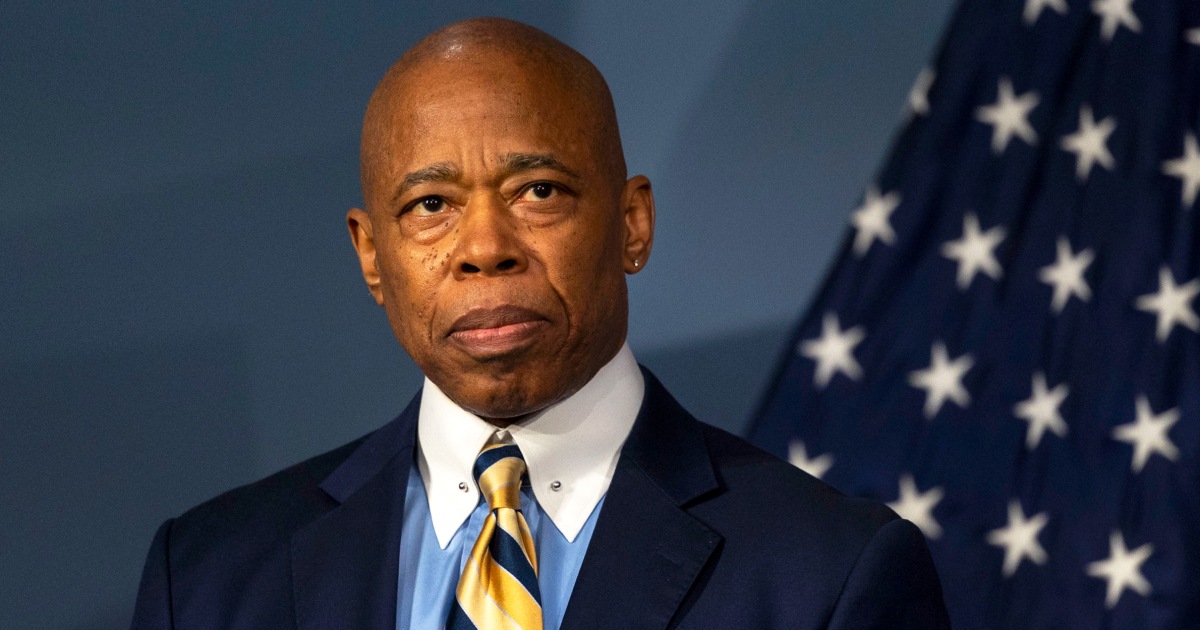
 News1 week ago
News1 week agoNYC Mayor Eric Adams' corruption case is dismissed
-

 Technology1 week ago
Technology1 week agoHere’s how you can preorder the Nintendo Switch 2 (or try to)
-

 News1 week ago
News1 week agoTrump’s ‘Liberation Day’ Tariffs Are Coming, but at a Cost to U.S. Alliances
-

 News1 week ago
News1 week agoTrump to Pick Ohio Solicitor General, T. Elliot Gaiser, for Justice Dept. Legal Post
-
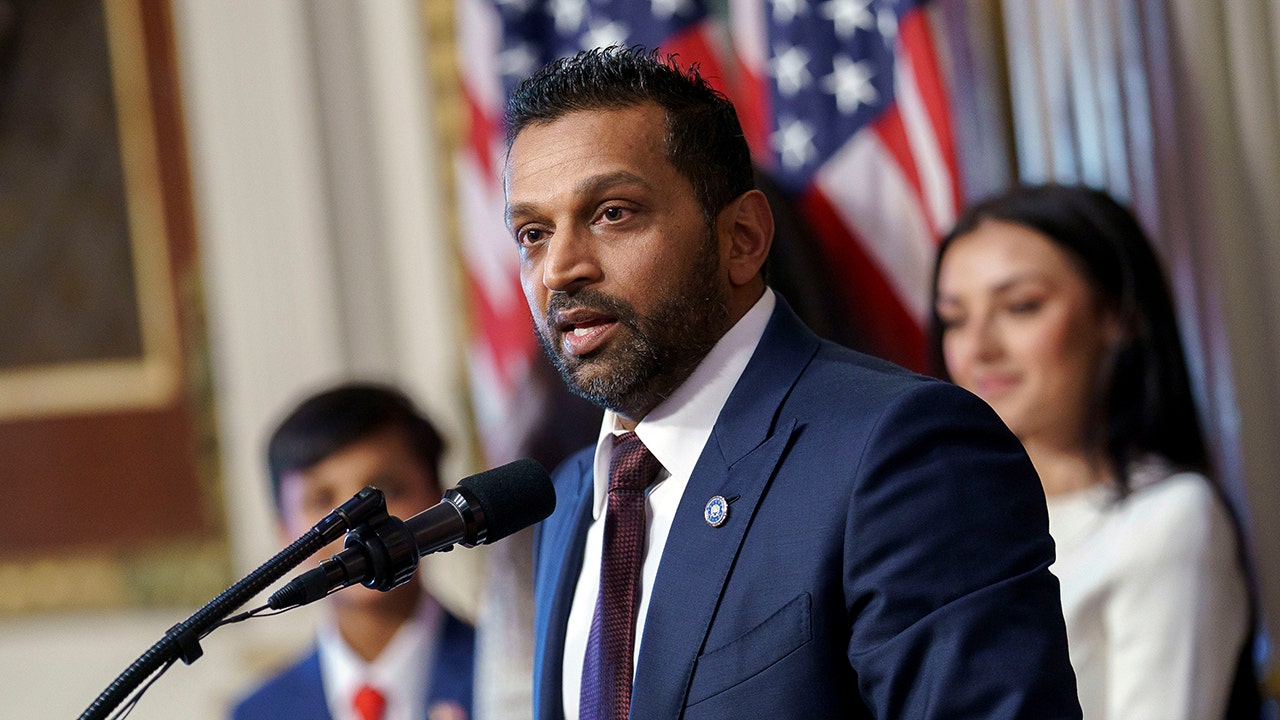
 Politics1 week ago
Politics1 week agoFBI flooded with record number of new agent applications in Kash Patel's first month leading bureau
-

 Business1 week ago
Business1 week agoMarkets Remain Uneasy as Trump Prepares Sweeping ‘Reciprocal’ Tariffs







